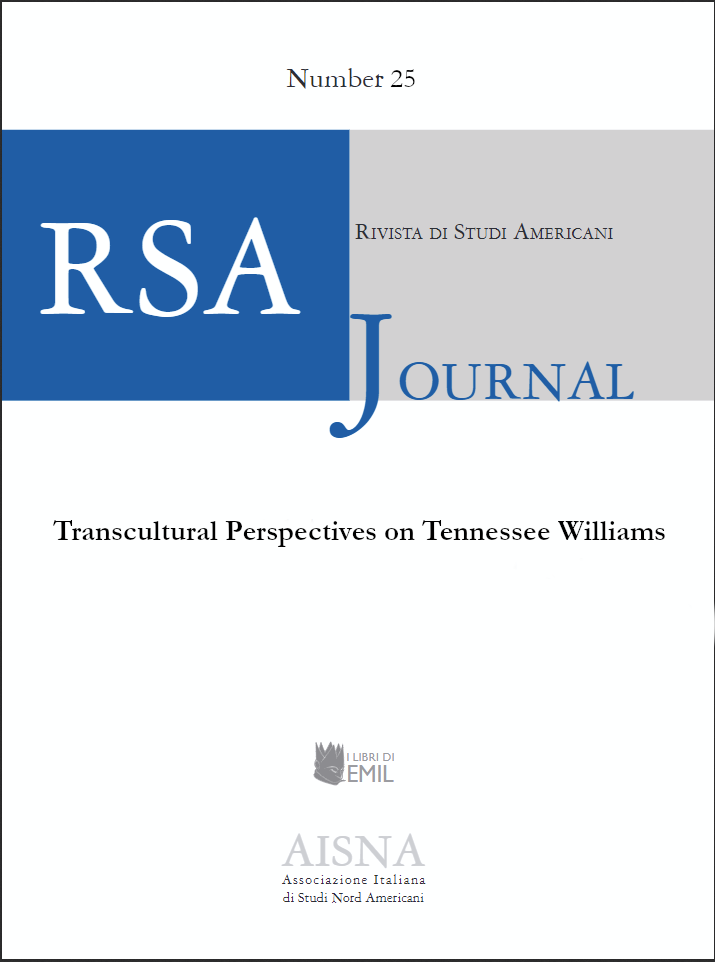Tennessee Williams and Luchino Visconti
Various Stages of Outrage – and Censorhsip
DOI:
https://doi.org/10.13135/1592-4467/8605Keywords:
censorhsip, Luchino Visconti, theatre, postwarAbstract
The essay traces the early history of Williams’ theatre in Italy, on the background of the cultural conditions of the country in the PostWar years. The Glass Menagerie and A Streetcar Named Desire were presented to Italian audiences for the first time by Luchino Visconti, in some memorable productions in Rome and Milan (1946, 1949, 1951). The director’s aura, together with the novelty of the plays, caused very different reactions in critics and reviewers. Many were outraged either by the subject matter or by the original style of the plays, and turned their attention to Visconti as the only real artist involved in these shows. The powerful connection of Visconti and Williams, though, also attracted the attention of the Bureau of Censorhsip, that had something to say on each and every project that involved the two artists.
Downloads
Published
Issue
Section
License
RSAJournal will apply a CC BY 4.0 license to all its contributions starting with issue 37 (2026). Previous issues are licensed under a CC BY-NC-ND licence.





